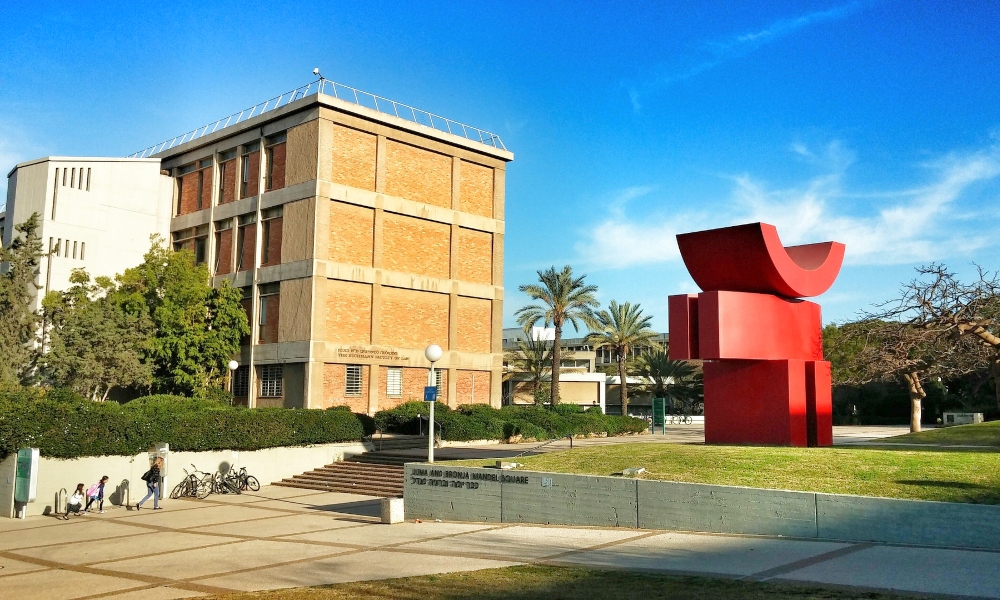
In mid-July, a majority of justices of Israel’s High Court of Justice ruled that Israel’s Council for Higher Education can continue its gender-segregated education programs for ultra-Orthodox students in publicly funded colleges and universities. These programs enable ultra-Orthodox male students, who observe strict gender segregation, to pursue academic studies, and the legal battles surrounding them have been going on for nearly a decade.
At the same time, the Court put limitations on these programs, ruling that gender segregation can only be maintained inside classrooms and not in libraries, cafeterias or other indoor and outdoor public spaces. In addition, the court ruled that women lecturers cannot be barred from teaching all-male classes. Yofi Tirosh, head of the law school at Sapir College in Sderot and a faculty member at Tel Aviv University, is the primary petitioner to the High Court, telling Moment that she is “pleased that the court limited the discrimination against women. Integration of the ultra-Orthodox is a worthy goal, but it cannot be implemented at the price of equality for all.”
In contrast, Yuval Elbashan, dean of the Ono Academic College’s Faculty of Law and a strong proponent of the gender-segregated classes, says that the “High Court understood that the attempt to impose liberal values on social groups that do not uphold these values is not only anti-feminist, but also counter-productive.”
As extensively reported by Moment, over the past decade, more than a dozen publicly funded colleges and universities in Israel have introduced gender-segregated classes. These classes are part of an effort to draw the ultra-Orthodox into higher education, following research showing that ultra-Orthodox men’s low rates of participation in the job market was becoming an unbearable drain on the Israeli economy. The Council for Higher Education determined that, in order to make it easier for ultra-Orthodox men, many of whom observe strict gender-segregation practices, to earn a living, it was necessary to encourage them to pursue academic studies by creating separate spaces in the secular academic world that would meet their values and behaviors, especially with regard to gender segregation and modesty norms.
Encouraged by generous public grants, cash-strapped colleges and universities established what became popularly known as “sterile” men-only classrooms, where women were not permitted as classmates or teachers. Ultra-Orthodox women were also encouraged to study separately; unlike their male counterparts, they were taught by both men and women. The restrictions, however, soon expanded into separate days for study, library use, cafeteria hours and use of all public spaces.
Tova Hartman, dean of humanities at the Kiryat Ono Academic College and a founder of Shira Hadashah, an halachically observant congregation with egalitarian values in Jerusalem, believes that these separations were valuable for ultra-Orthodox women. “Ultra-Orthodox women and their needs have been invisible in Israeli society, and they have not been able to enter the halls of academia on their own terms,” she says. “The separation is what enables them to get a degree and fulfill their intellectual and academic goals.
But as the separation measures increased, groups of individuals and some liberal nonprofit organizations petitioned the court, claiming that they undermine equal opportunities for women lecturers, violate women’s fundamental right to equality in the public sphere, and contradict basic democratic norms. They were countered by petitions, most prominently from the Kohelet Policy Forum, a conservative think tank, that demanded that all limits on separate-sex studies be removed on the grounds that such restrictions violate the right to cultural autonomy.
Tirosh warns that “the creation of women-free spaces has a dangerous potential for being legitimized and spreading to the exclusion of women in public halls, at municipal events, in public spaces like libraries, medical clinics and cemeteries, on streets and buses and even at formal government events.”
Recent events suggest that the Court’s decision will not provide a final word on this issue. The Israel Nature and Parks Authority, for example, has implemented programs for gender-segregated swimming at some nature preserves. United Torah Judaism leader Moshe Gafni contends that these programs are necessary for “men and women, Jews and Arabs alike,” but Environmental Protection Minister Tamar Zandberg, from the left-wing Meretz party, has announced that she will oppose them. “Gender segregation is a form of exclusion and constitutes a material violation of equality,” she declared.
